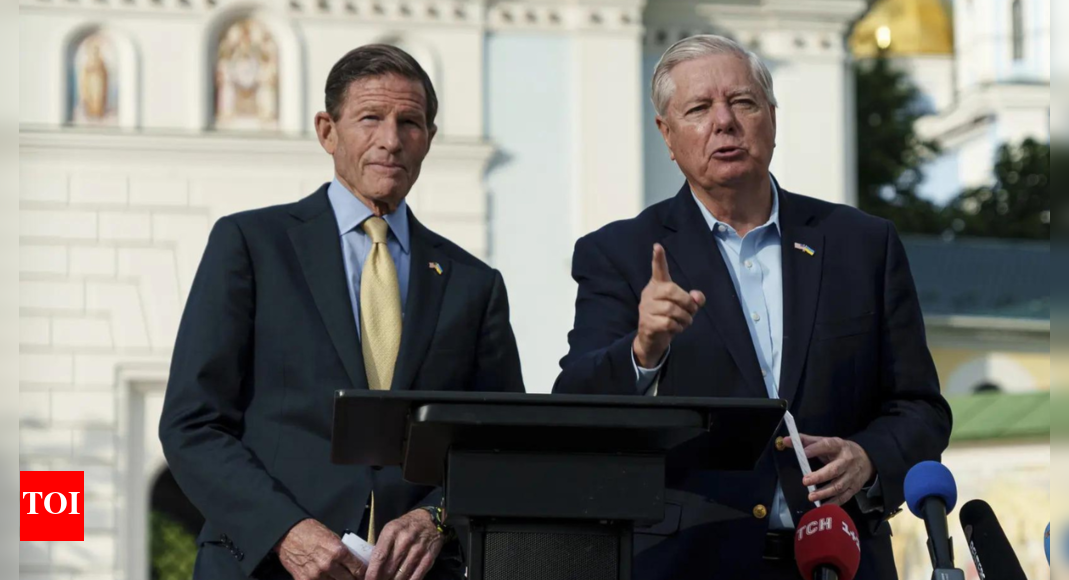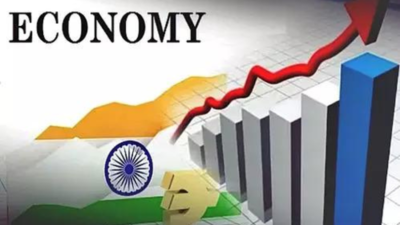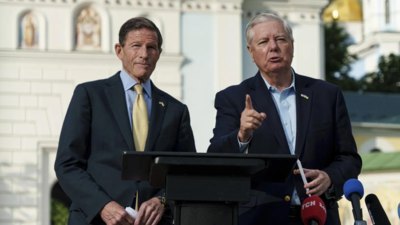‘Fueling Putin’s war machine’: Will India, China face tariff heat over Russian oil? US senators call for 500%

US Senators Lindsey Graham and Richard Blumenthal have warned that countries like India, China, and Brazil, all members of Brics — could face economic sanctions if they continue trading with Russia. This comes at a time when US President Donald Trump has announced that he will impose 100 percent “secondary tariffs” on Russia if President Vladimir Putin does not agree to end the war in Ukraine within 50 days.Senators Graham and Blumenthal, who belong to different political parties, have introduced a bill in the US Congress earlier this year. It has support from 85 other lawmakers and proposes tough sanctions on Russia. They say the bill could act as a “sledgehammer” to pressure Putin into ending the war.Senator Blumenthal posted on X, “We’ll continue to push for Senator Graham & my Russia Sanctions bill with even tougher penalties to deter India, China, Brazil & others from fueling Putin’s war machine. Congressional action sends a powerful message of support.”According to a joint statement by the two Senators, countries like India, China, and Brazil are helping Russia by buying cheap oil and gas, which they believe is helping Putin continue the war. The bill suggests imposing tariffs as high as 500 percent on any country that supports Russia in this way.Trump announced the idea of secondary tariffs during a meeting with Nato Secretary General Mark Rutte on Monday. Senator Blumenthal praised the move, calling it a “breakthrough step” and described Putin as a “thug.”Blumenthal also said on X, “The President’s announcement is a breakthrough step–committing to both substantial military aid & strong sanctions. It recognizes the urgency of showing sledgehammer strength–because peace through strength is the only viable strategy with a thug like Putin.”The joint statement from Graham and Blumenthal welcomed Trump’s announcement and said it was a strong step to push for peace talks. It read, “The ultimate hammer to bring about the end of this war will be tariffs against countries, like China, India and Brazil, that prop up Putin’s war machine by purchasing cheap Russian oil and gas. President Trump’s decision to announce the implementation of 100 percent secondary tariffs on countries that buy Russian oil and gas if a peace agreement is not reached in the next 50 days is a real executive hammer to drive the parties to the negotiating table. The goal is not more tariffs and sanctions – the goal is to entice Putin to come to the peace table.”They also added, “Finally, as President Trump indicated, we will join our colleagues in continuing to work with the White House on our bipartisan Russia sanctions legislation that would implement up to 500 percent tariffs on countries that buy Russian oil and gas and do not help Ukraine.”During his meeting with the Nato chief, Trump said, “One of the reasons that you’re here today is to hear that we are very unhappy – I am – with Russia. But we will discuss that maybe another day. But we’re very, very unhappy with them, and we’re going to be doing very severe tariffs if we don’t have a deal in 50 days. Tariffs at about 100 percent. You’d call them secondary tariffs. But today, we’re going to talk about something else.“India has responded to these developments. External affairs minister S Jaishankar recently said that Indian officials have been in contact with Senator Graham regarding the proposed sanctions bill.Speaking at a press conference, Jaishankar said, “Regarding Senator Lindsey Graham’s bill, any development which is happening in the US Congress is of interest to us if it impacts our interest or could impact our interest. So we have been in touch with Senator Lindsey Graham. The embassy, ambassador have been in touch. Our concerns and our interests on energy, security have been made conversant to him. So we’ll then have to cross that bridge when we come to it. If we come to it.”





